No More Silicon? Company Develops Glass CPU for Quantum Computing
It seems evaporated glass, chains of ions, and quantum stability go hand in hand.
IonQ, a Maryland-based company with ties to the University of Duke and its Duke Quantum Center, has recently announced the development of a new, glass-based trapped-ion computing chip which replaces their previous works with silicon-based designs.
This glass trap technology is based on etching micrometer-level-precision in fused silica glass, which will then contain the company's new computing units - reconfigurable chains of ion-based qubits. Possibility of scaling? At least triple-digits, in the current state of the technology. The company previously offered 32-qubit machines to customers, having delivered systems to major cloud services providers, including Microsoft Azure, Amazon Web Services, and Google Cloud. The company is calling their new architecture "reconfigurable multicore quantum architecture" - RMQA, for short.
There are a number of different approaches currently being explored towards our quantum computing future. IonQ has decided to go the trapped ion way when it comes to reaching quantum supremacy - the moment where problems that are impossible to solve in a classical, Turing-based computer are finally served to quantum computing's platter - and solutions emerge where billions of years of required, classical computation only existed moments ago.
The company isn't the only one to explore this space - AQT, Honeywell and Oxford Ionics are three other companies focusing on the trapped ion philosophy to enable quantum computing scaling. This particular approach works by keeping electrically charged atoms (ions) in place on a given substrate, with recourse to magnetic fields. in this case, an enclosed glass chip, The qubits in this design are stored in electronic states; this, in turn, allows for ions to interact with the qubits - after they are accelerated via powerful laser beams, that is.
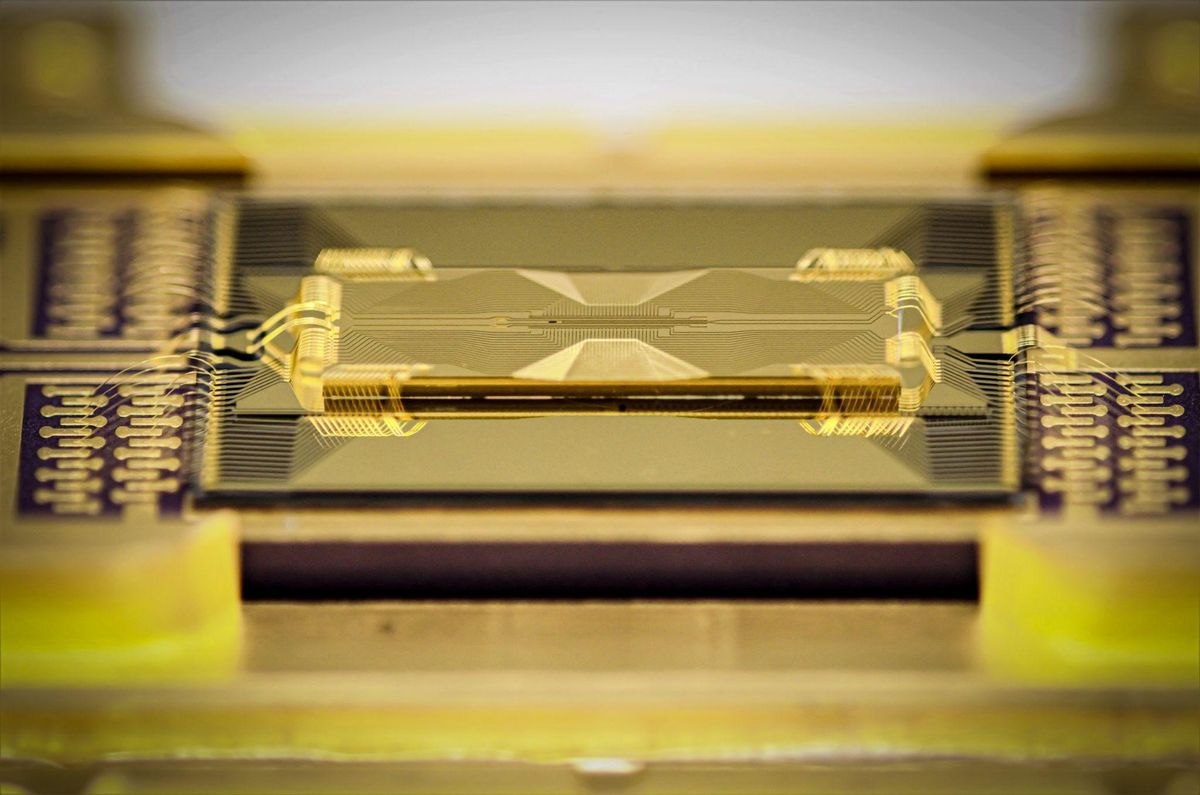
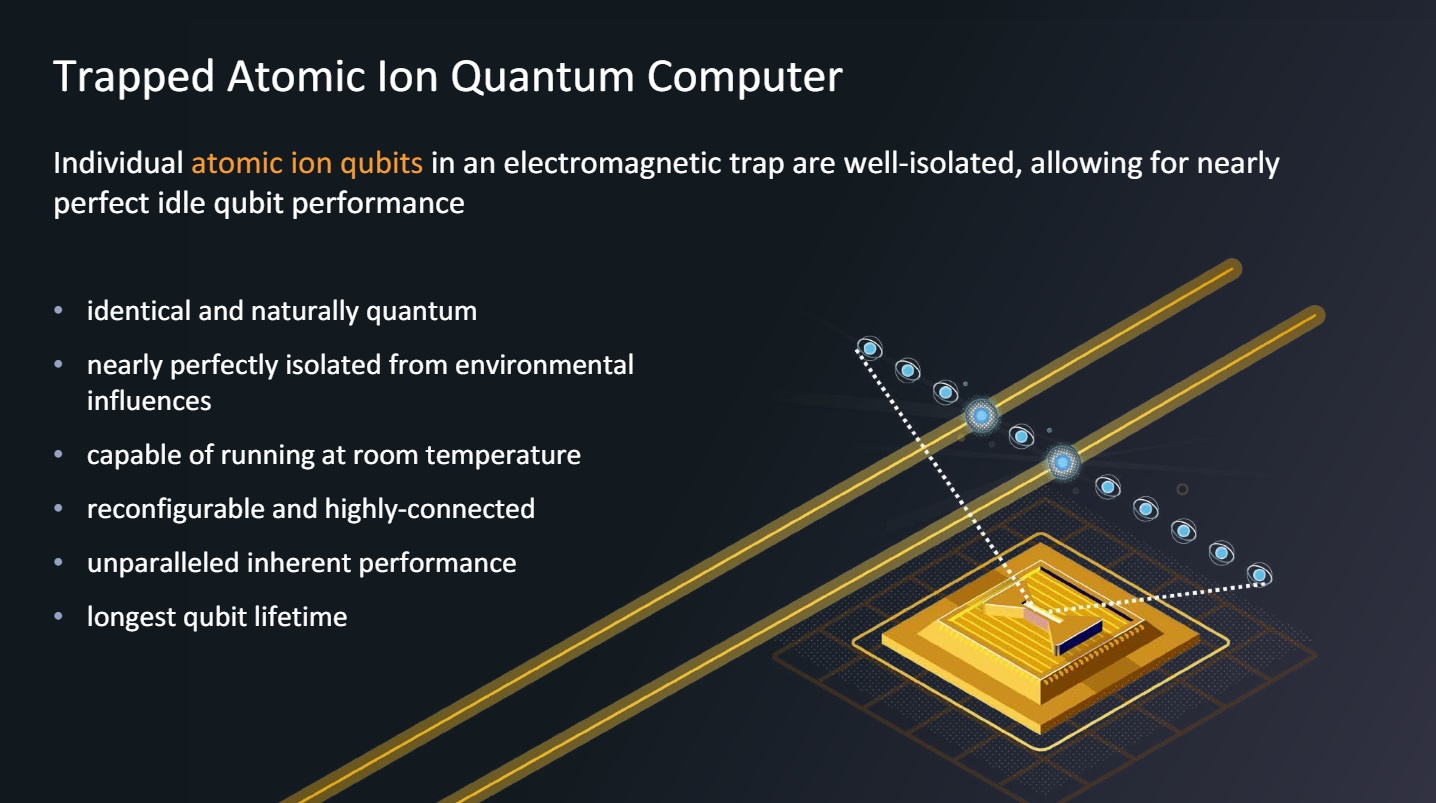
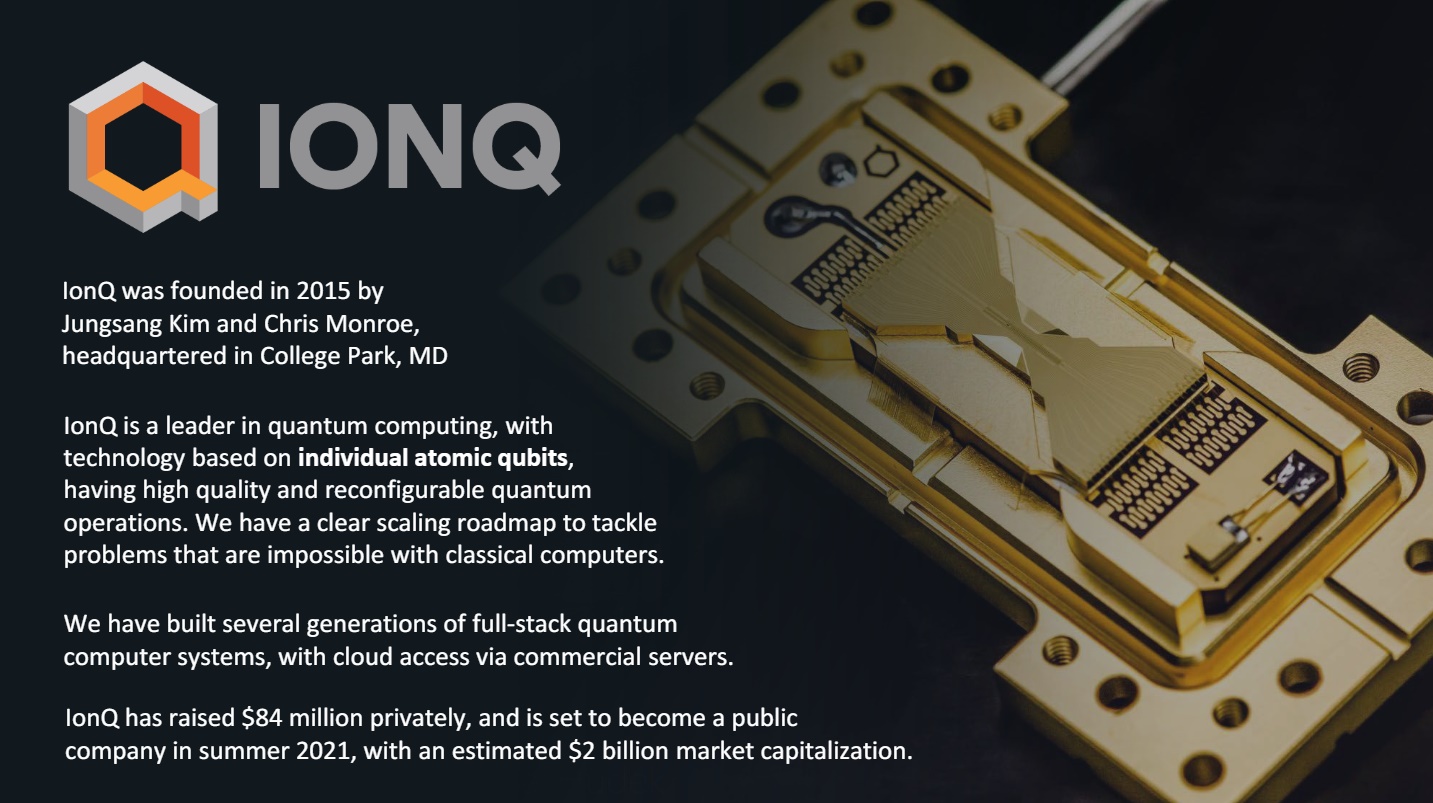
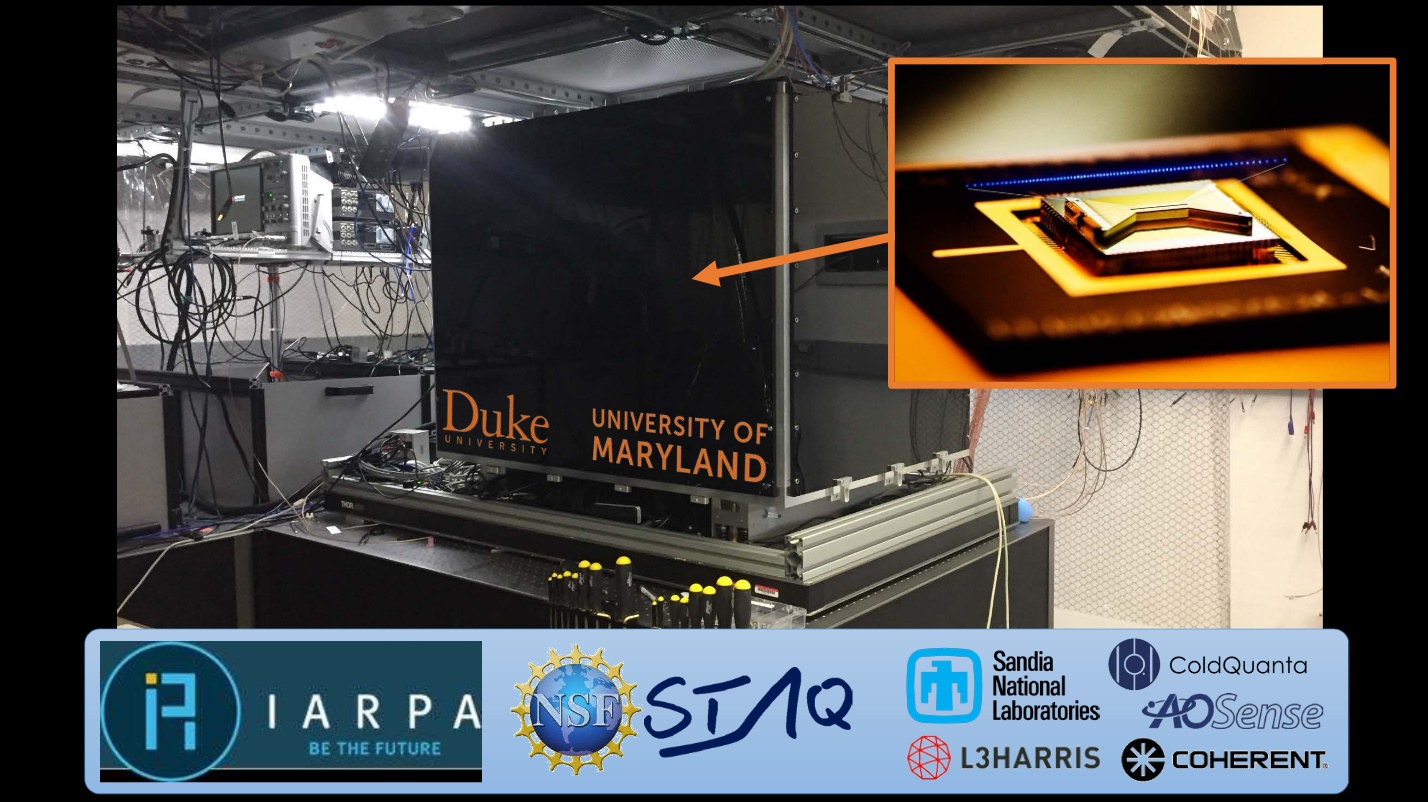
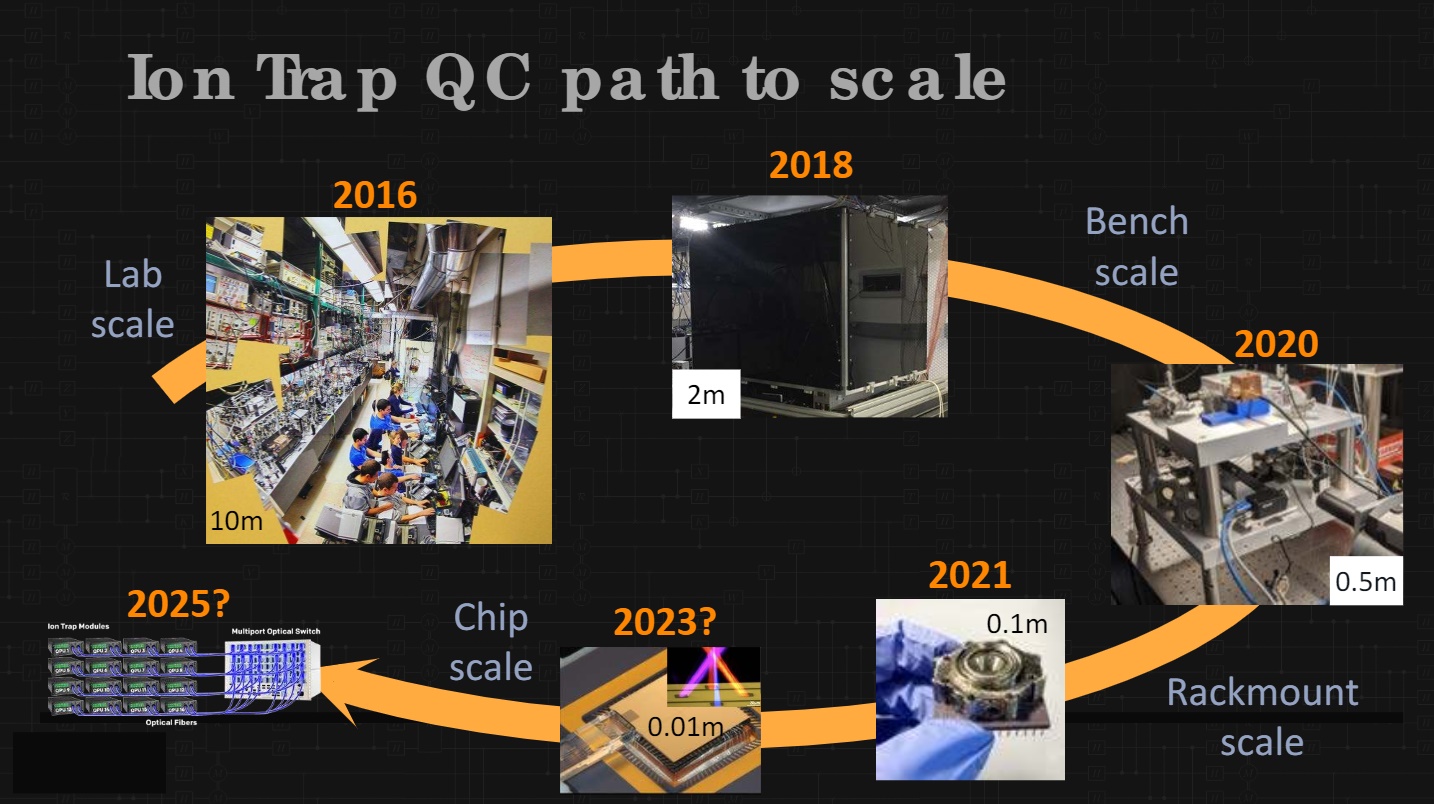
IonQ claims that this trapped ion approach - and especially with recourse to the new glass trap technology - allows for the currently highest-known qubit longevity (before their states naturally decohere, thus making them unusable for the purposes of quantum computing).
According to the company, the pros for this particular qubit approach - which makes use of naturally-occurring qubits - don't stop there: they claim a high number of qubits can be connected and made to work in tandem in such a way, whereas other approaches show much lesser potential for qubit scaling, and fidelity of the results is touted at an impressive 99.9%. Part of that is a direct result of the new, glass-based approach: Jason Amini, who led the team working on the evaporated glass approach at IonQ, explains that "The purpose of an ion trap is to [1] move ions around with precision, [2] hold them in the environment, and [3] get out of the way of the quantum operation."
The fused-glass approach, according to IonQ, has proven to improve on all three of those dimensions - glass is a notoriously able insulator. The glass chips' special design has been developed to allow for the laser beams to interact with the qubit ion chains suspended inside it with surgical precision.
Get Tom's Hardware's best news and in-depth reviews, straight to your inbox.
For now, the company has demonstrated a chip with 64 total qubits built on this new vitreous approach to quantum. The company's design is relatively simple - four individual chains of 16 qubits are held in the ion trap. However, the approach has some caveats. Only 48 of those qubits are actually available as computing power; the remaining 16 qubits (four per chain of 16) are used as "refrigerant" ions, which correct for system imperfections and fluctuations that might occur inside the chip.
This, however, means that the system can easily be scaled the old Turing way of AMD and Intel -- just add more surface area that can hold ion chains, and you can multiply the amount of qubits in a given system effortlessly -- with perfect scaling. Peter Chapman, IonQ CEO, explains that "the architecture allows you to relatively easily expand to hundreds of qubits on a single chip."
This has put IonQ on the path to create racks filled with quantum chips, interconnected and centrally controlled via integrated photonics. "Once you do entanglement, distance no longer matters," says Chapman. "Whether or not it's multiple chains on a chip or one chip to another, it all acts as if it's one big quantum computer."
IonQ is on the way to become the first publicly traded, pure-play quantum company, having already taken steps to ensure a 2021 summer market listing, at an estimated valuation of $2 billion.

Francisco Pires is a freelance news writer for Tom's Hardware with a soft side for quantum computing.
-
InvalidError Reply
And the article even says "silica glass" so mostly silicon.velocityg4 said:Uh, glass is typically made of silicon.
There is no shortage of silicon itself since it is one of the most abundant elements in the Earth's crust. What there is a shortage of is refining and wafer processing capacity to turn it into enough chips to meet demand. -
husker "IonQ has decided to go the trapped ion way when it comes to reaching quantum supremacy - the moment where problems that are impossible to solve in a classical, Turing-based computer are finally served to quantum computing's platter - and solutions emerge where billions of years of required, classical computation only existed moments ago. "Reply
Maybe someday quantum computers will be able to decipher this sentence.